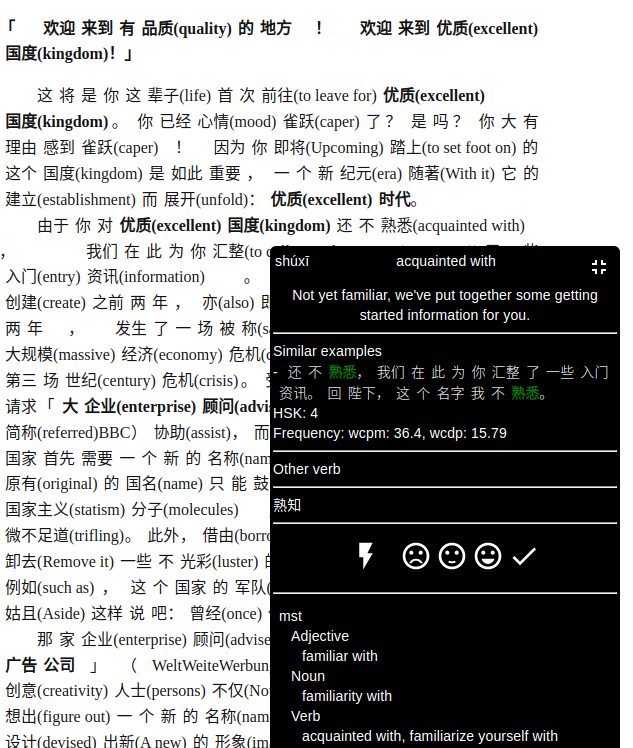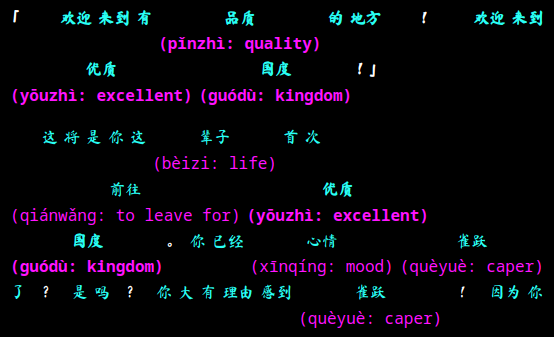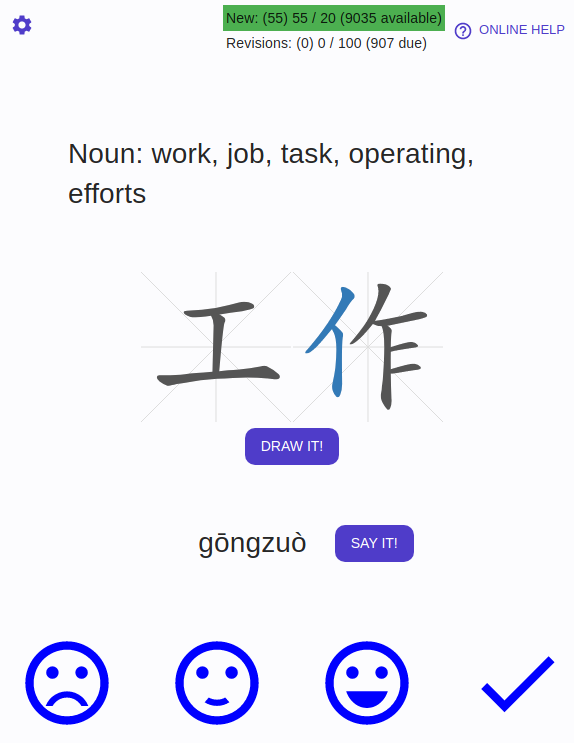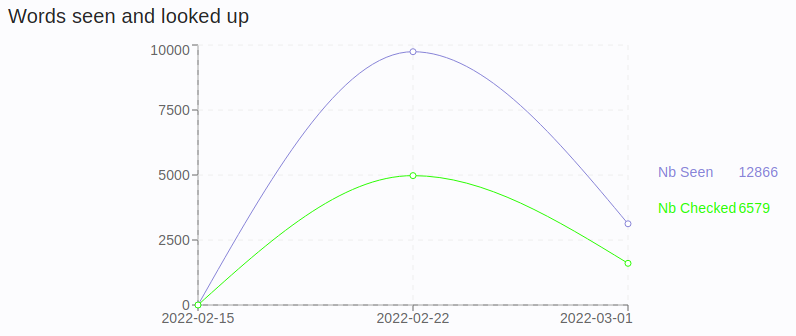Welcome to Transcrobes!
Transcrobes is an open ecosystem for learning languages, with actual learners at the centre of all research, development and services.
It is open source, open research and open education.
What can it do?

Transcrobes provides deeply individualised comprehension and learning aids, to turn any authentic text into an optimised tool for language learning. Get help only with the stuff you need help for, with automatic glosses for unknown words, and on-demand definitions, translations, similar sentences, synonyms, and direct integration with active learning tools like spaced repetition, and much more.

Personalise every aspect of the texts and aids, including the text and gloss fonts, text and gloss colours, gloss content, light/dark mode and more, so you choose the way in which you are most comfortable reading and learning.


With video, ebooks, web and and text you can copy/paste or put in a text file supported, you are not limited to a restricted catalogue of material, and can explore the language and culture on your own terms.
An ecosystem of learning
Because humans are complex and learn using many different techniques in many different contexts, Transcrobes provides many different ways to learn, and is constantly evolving to add new ways to learn. The project has a non-dogmatic “if it works, it’s good” attitude, and plans to make tools that can be effectively used by individual learners, tutors, schools, universities, companies and governments alike.
The current phase targets independent learning and has two focuses: authentic content-based learning and spaced repetition, and other tools and techniques will be added as the project moves forward.
Content-based Learning
Transcrobes can analyse and enrich a variety of formats, including ebooks, video, copied text, and other imports.
Advanced Spaced Repetition
Repetrobes, the integrated spaced-repetition/flashcard software for learning vocabulary has a number of advanced modes, including calculating the most valuable vocabulary for you to learn based on the content you actually consume and the goals you set for yourself, not on some generic, outdated list formulated decades ago by some aging grammar teacher.

Reflect and analyse
Control and understand your progress over time, with self-defined goals, statistics and more to give you both the learning tools and insights into your own learning, to achieve what you want, and not what someone else wants for you (though the two are obviously not mutually exclusive!).


Research
Transcrobes is also an active research project, focused on understanding how learners really learn in real learning environments over real learning timescales (so years), rather than the artificial experimental contexts (so hours) most current research has decided to use, for the sake of simplicity. Transcrobes hopes to show that academic research can actually produce real value for real people while producing high-quality research, rather than only produce abstract results that are very difficult to apply in real-life contexts.